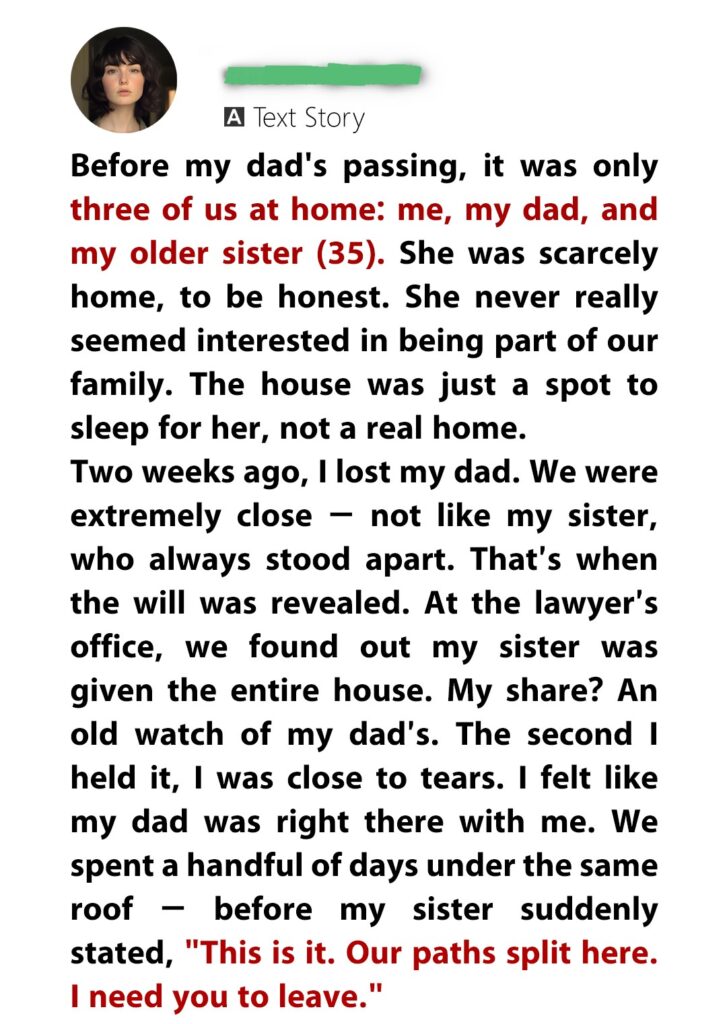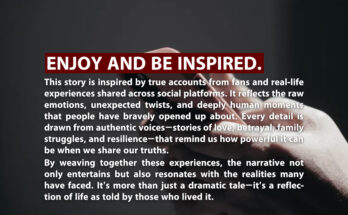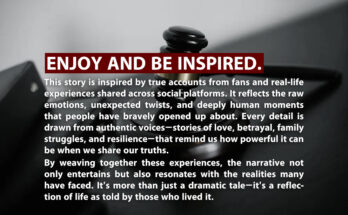After our father passed away, I hoped grief might soften my sister Charlotte’s heart. But just two weeks after the funeral, she coldly told me to leave the house we’d both grown up in. No explanation. No compassion. Just a suitcase and silence.
Charlotte had always kept me at arm’s length, treating me more like a burden than a sibling. Dad, though—he was my anchor. He saw the tension, the subtle cruelties, and the way she dismissed me. But he never confronted her. Instead, he quietly prepared for the storm he knew would come.
As I stood outside with nowhere to go, I remembered the envelope Dad had given me before he died. “Open this only if things go wrong,” he’d said. I hadn’t understood then. But now, trembling and betrayed, I tore it open.
Inside was a letter and a legal document. Dad had rewritten his will months before his death. The house wasn’t Charlotte’s—it was mine. He had foreseen her rejection and made sure I’d be protected. His words in the letter were simple but powerful: “You deserve peace. You deserve a home.”
I returned to the house, papers in hand. Charlotte was stunned, speechless. The arrogance drained from her face as reality set in. I didn’t gloat. I didn’t yell. I simply reclaimed what was mine—not just the house, but the dignity she tried to strip away.
Dad’s foresight didn’t just give me shelter. It gave me closure. In the end, love outmaneuvered cruelty. And I learned that sometimes, justice doesn’t roar—it arrives quietly, wrapped in a father’s love.



